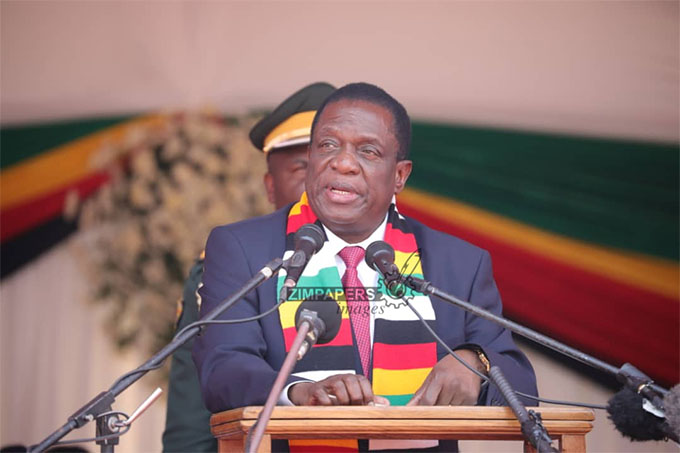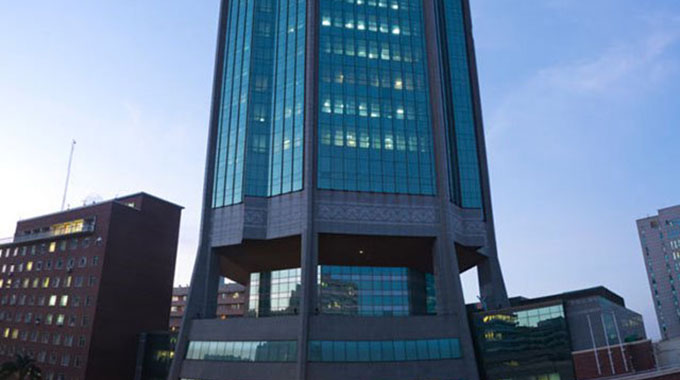EDITORIAL COMMENT: President’s call to support agric spot on

Funding interventions which Government has put in place for the next farming season and beyond are highly commendable and confirm the strategic importance of agriculture as the largest economic sector in the country.
In recognition of agriculture as the “engine” of the economy, President Mnangagwa revealed on Tuesday during his State of the Nation Address (Sona) speech and Opening of Second Session of the Ninth Parliament, various initiatives to support the sector.
We should hasten to say that the President has set the tone by placing agriculture where it rightly belongs in terms of its socio-economic status in Zimbabwe and all arms of Government and the private sector needs to put a united front and act in time to ensure the success of agriculture.
Action on what needs to be done must happen early to enable farmers to prepare adequately and in time so that the country and the economy recover fully from the effects of last year’s drought, which was worsened by Tropical Cyclone Idai, which ravaged parts of Manicaland and Masvingo provinces.
President Mnangagwa said the 2018-19 drought had seen agriculture recording negative growth, but interventions have been lined up to ensure the strategic sector recovers.
The Head of State and Government said $1,8 billion has been set aside towards the production of strategic crops such as maize, soya beans and cotton with over half a billion dollars set to be allocated towards the acquisition of inputs for vulnerable households and $332 million earmarked for cotton inputs.
He said $998 million will augment the $2,8 billion that banks and the private sector have earmarked to support the Government led imports substitution programme of Command Agriculture, which however, will this year prioritise those farmers with a proven track record of delivering to Grain Marketing Board and repaying loans they receive.
The Head of State and Government also took the opportunity of his address to the nation to encourage resettled A1 and A2 farmers to consider production of traditional grains in order to strengthen resilience.
Government has also not been short-sighted as to focus on support measures for the upcoming farming season only, but has looked beyond this season given the cocktail of multi-million dollar farm mechanisation programmes going forward.
These include the $60 million set aside for the rehabilitation of machinery under the Command Agriculture Programme while US$51 million has been set aside for the supply of various agricultural machinery from John Deere with some of it having already been delivered.
We therefore applaud and support the initiatives announced by the President seeing the heavy influence of agriculture on other economic sectors, particularly the manufacturing sector and other value chains across the economy.
Also, we are not blind to the extent of agriculture’s contribution to the overall performance and good of the Zimbabwe economy, including generating approximately 40 percent of Zimbabwe’s foreign currency earnings.
Government has also rightly accorded agriculture’s paramount importance because 60-70 percent of Zimbabwe’s population are employed in agriculture or related activities, thus the success of the agricultural sector is vital.
Notably as well is the fact that the economic developments over the last nine months, which saw annual inflation hit 175,5 percent in June this year, have seen the prices of most farming inputs rising beyond the reach of many farmers who as a result require State support.
The importance of agriculture cuts across disciplines and sectors such as food security, employment, balanced diet, economic growth, export generation, manufacturing value chains, supply of raw materials to various industries, hence we applaud the concerted efforts by Government to support the sector today and in future.
Important to also note that sections of the populations are predominantly rural and depend on rain-fed cereal-based agriculture in sub-humid and semi-arid areas, and pastoralism in arid areas. They are highly vulnerable to climate variability and change and require assistance to produce.
This having been said, we implore authorities to ensure that the inputs are delivered on time and that the right people receive them.
Those caught abusing the farming facility by allocating the inputs to undeserving people should also be shown the way.
People must understand that when Government says something it mean serious business and the people must comply and failure to do so will be met with serious consequences.









Comments